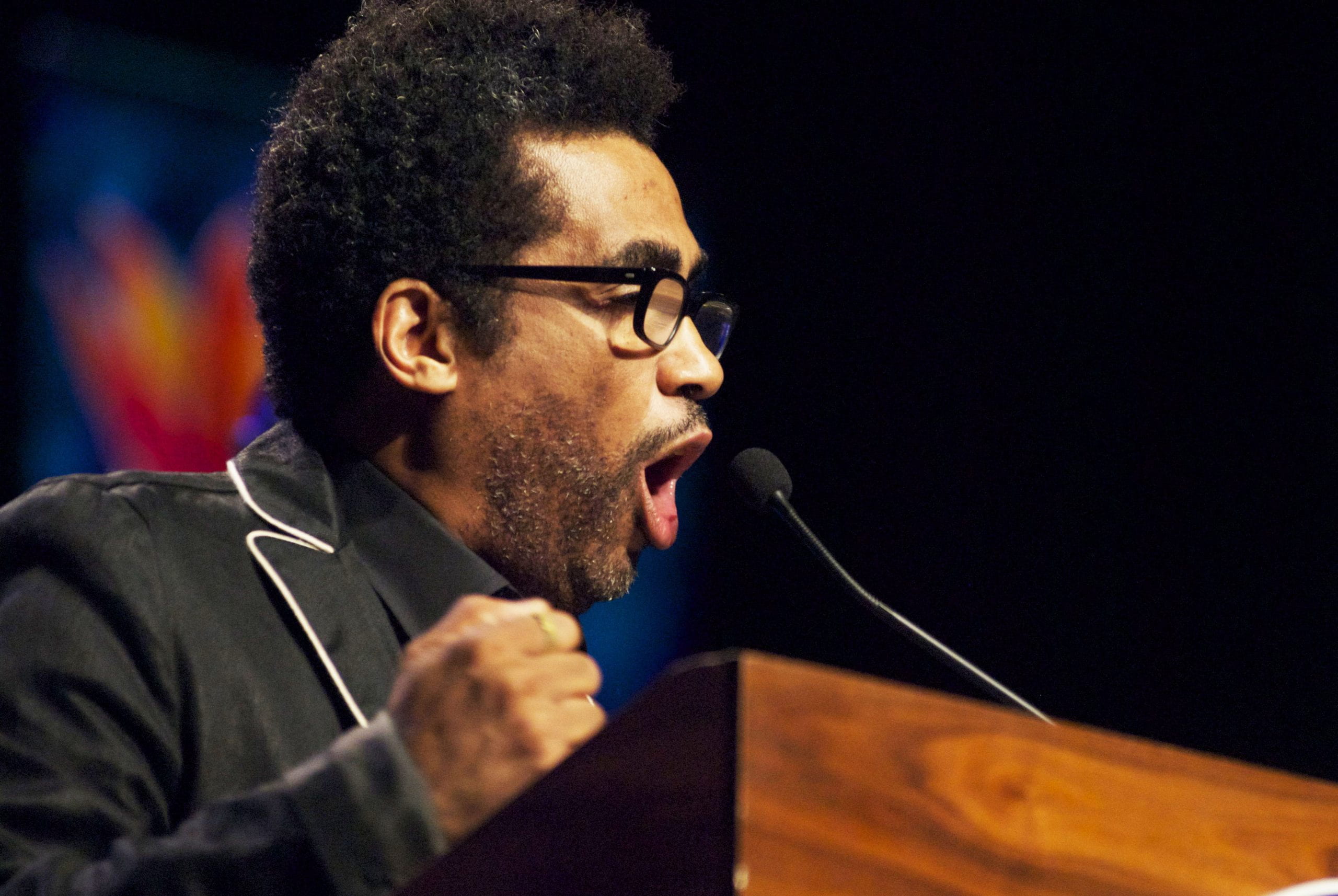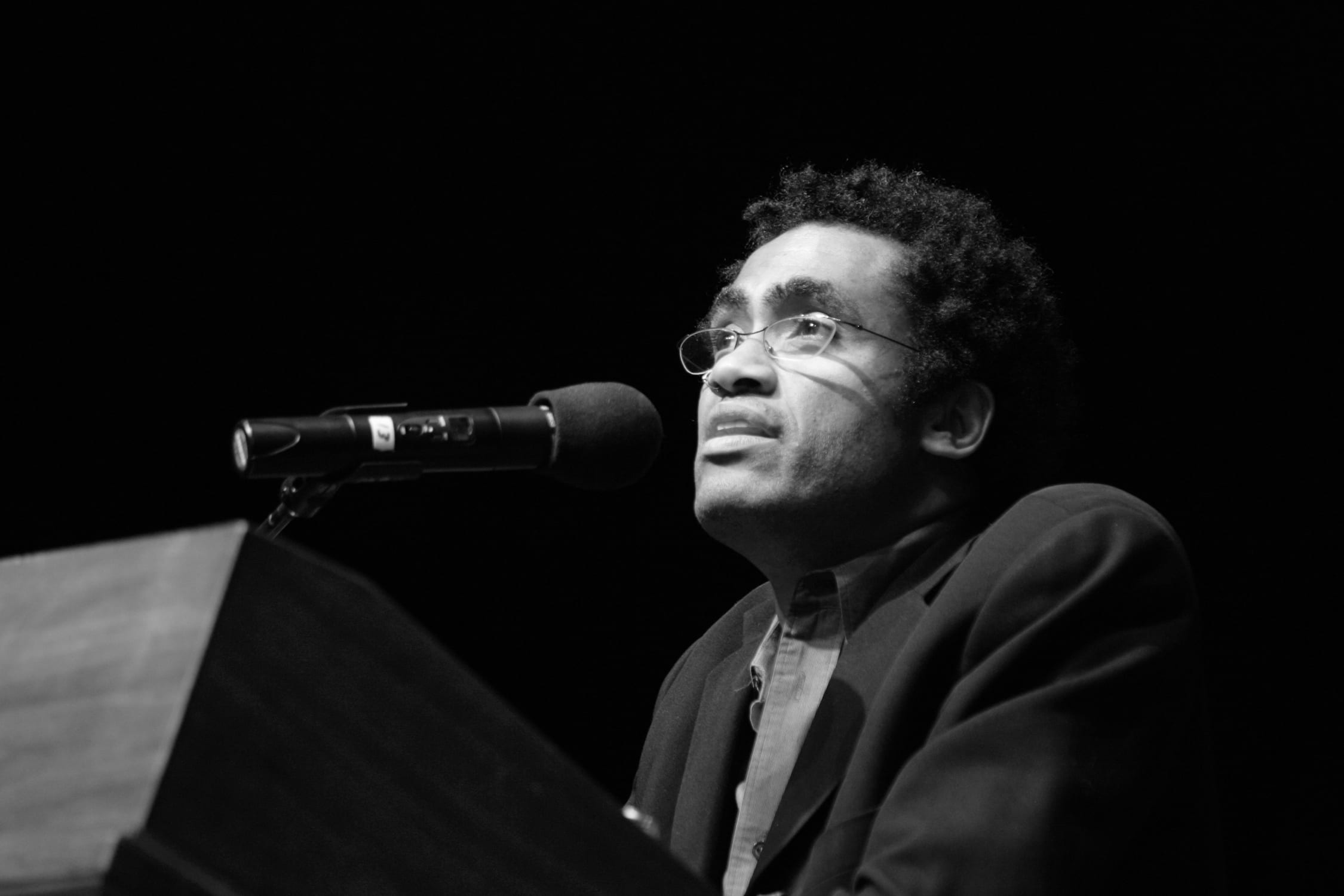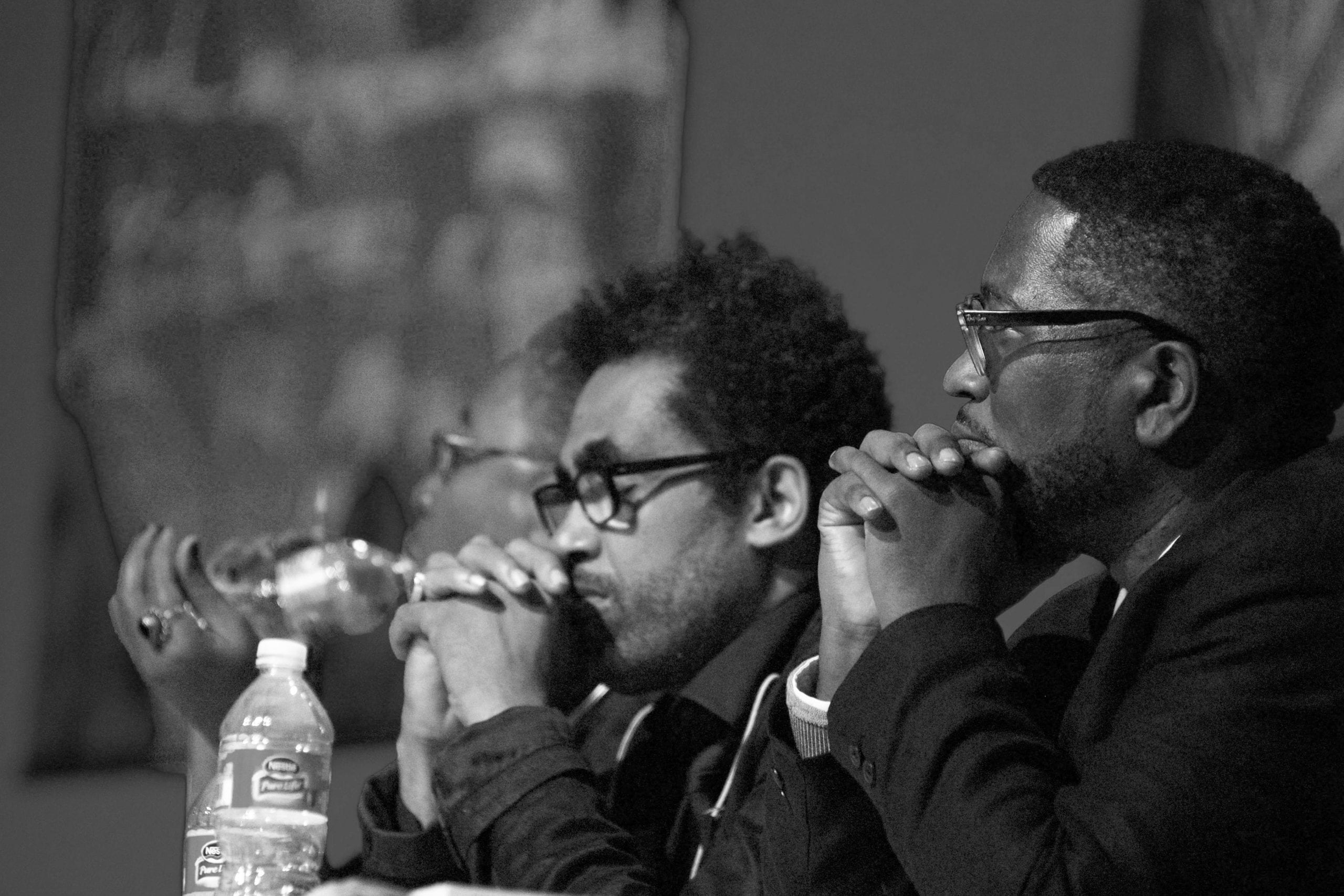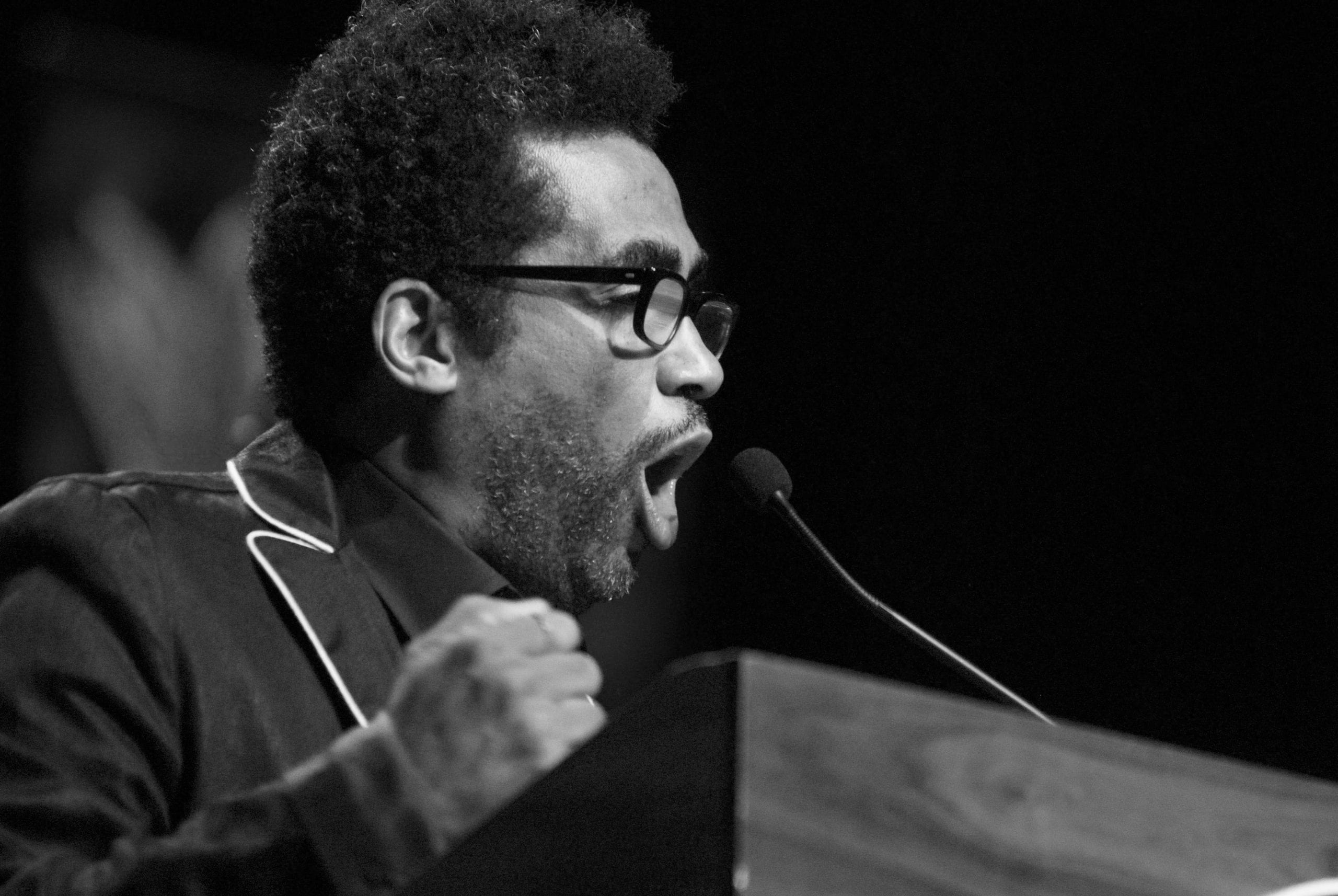Thomas Sayers Ellis
“The page tightened like a drum
Resisting the clockwise twisting
Of a handheld chrome key,
The noisy banging and tuning of growth.”

Thomas Sayers Ellis co-founded the Dark Room Collective with Sharan Strange in 1988 in Cambridge, Massachusetts. At the time of the 1994 conference, Ellis was still an MFA candidate at Brown University. Since then, Ellis has become an award-winning poet and professor. His first collection of poetry, The Maverick Room (2005), received the John C. Zacharis First Book Award. Ellis has also received fellowships and grants from the MacDowell Colony, Yaddo, Fine Arts Work Center, Ohio Arts Council, as well as a Guggenheim Fellowship and a Whiting Writers’ Award. He has worked as a contributing editor for Poets & Writers and Callaloo, and as an associate professor at Sarah Lawrence College, Bennington College, and Case Western University, where he was awarded a Carl F. Wittke Award for Undergraduate Teaching.
Featured Poems
“Sticks”
“View of the Library of Congress from Paul Laurence Dunbar High School“



Interviews, Talks, and Readings
/ Thomas Sayers Ellis reads “Sticks”
Sticks
My father was an enormous man
Who believed kindness and lack of size
Were nothing more than sissified
Signs of weakness. Narrow-minded,
His eyes were the worst kind
Of jury—deliberate, distant, hard.
No one could outshout him
Or make bigger fists. The few
Who tried got taken for bad,
Beat down, their bodies slammed.
I wanted to be just like him:
Big man, man of the house, king.
A plagiarist, hitting the things he hit,
I learned to use my hands watching him
Use his, pretending to slap mother
When he slapped mother.
He was sick. A diabetic slept
Like a silent vowel inside his well-built,
Muscular, dark body. Hard as all that
With similar weaknesses
—I discovered writing,
How words are parts of speech
With beats and breaths of their own.
Interjections like flams. Wham! Bam!
An heir to the rhythm
And tension beneath the beatings,
My first attempts were filled with noise,
Wild solos, violent uncontrollable blows.
The page tightened like a drum
Resisting the clockwise twisting
Of a handheld chrome key,
The noisy banging and tuning of growth.
/ Thomas Sayers Ellis reads “View of the Library of Congress from Paul Laurence Dunbar High School”
View of the Library of Congress from
A white substitute teacher
At an all-Black public high school,
He sought me out saying my poems
Showed promise, range, a gift,
And had I ever heard of T.S. Eliot?
No. Then Robert Hayden perhaps?
Hayden, a former colleague,
Had recently died and the obituary
He handed me had already begun
Its journey home—from the printed page
Back to the tree, gray becoming
Yellow, flower, dirt.
No river, we skipped rocks
On the horizon, above Ground Zero,
From the roof of the Gibson Plaza Apartments.
We’d aim, the shout the names
Of the museums, famous monuments,
And government buildings
Where our grandparents, parents,
Aunts, and uncles worked. Dangerous duds.
The bombs we dropped always fell short,
Missing their mark. No one, not even
Carlton Green who had lived in
As many neighborhoods as me,
Knew in which direction
To launch when I lifted Hayden’s
Place of employment—
The Library of Congress—
From the obituary, now folded
In my back pocket, a creased map.
We went home, asked our mothers,
But they didn’t know. Richard’s came
Close: Somewhere near Congress,
On Capitol Hill, take the 30 bus,
Get off before it reaches Anacostia,
Don’t cross the bridge into Southeast.
The next day in school
I looked it up—the National Library
Of the United States in Washington, D.C.
Founded in 1800, open to all taxpayers
And citizens. Snap! My Aunt Doris
Works there, has for years.
Once, on her day off, she
Took me shopping and bought
The dress shoes of my choice.
Loafers. They were dark red,
Almost purple, bruised—the color
Of blood before oxygen reaches it.
I was beginning to think
Like a poet, so in my mind
Hayden’s dying and my loafers
Were connected, but years apart,
As was Dunbar to other institutions—
Ones I could see, ones I could not.
Related Links
Seeding the Future of African American Poetry
Interactive Program Day II
Timeline: History, Witness, and the Struggle for Freedom in African American Poetry